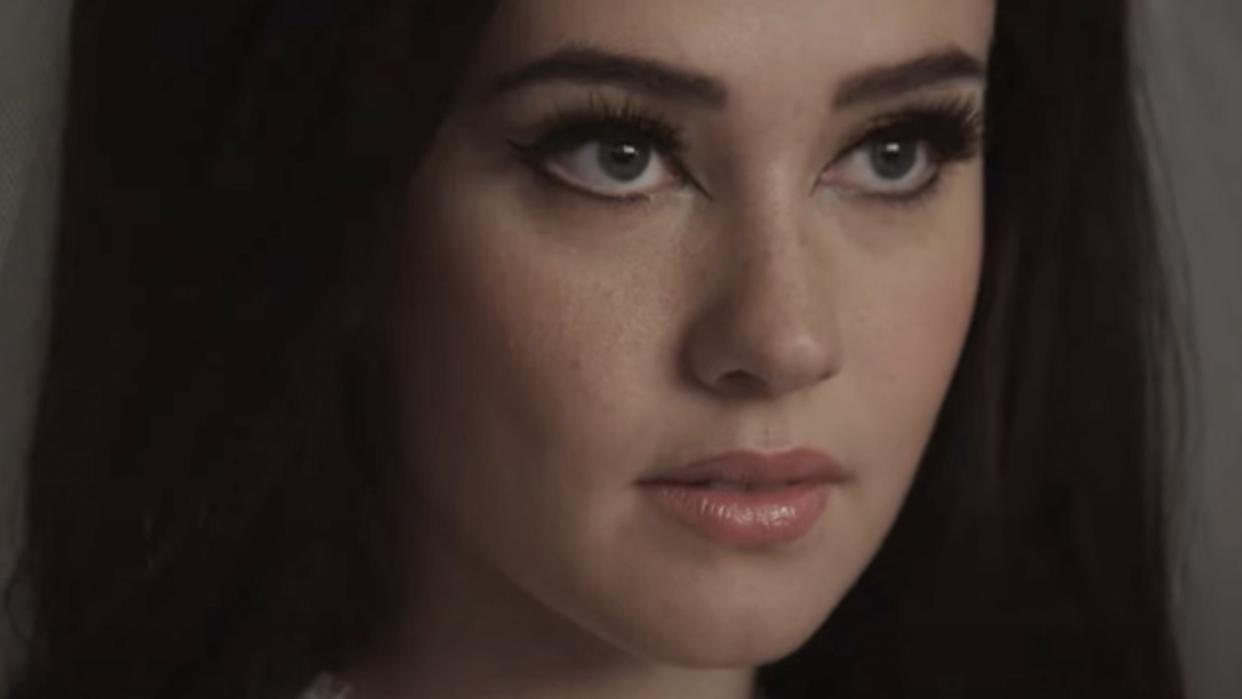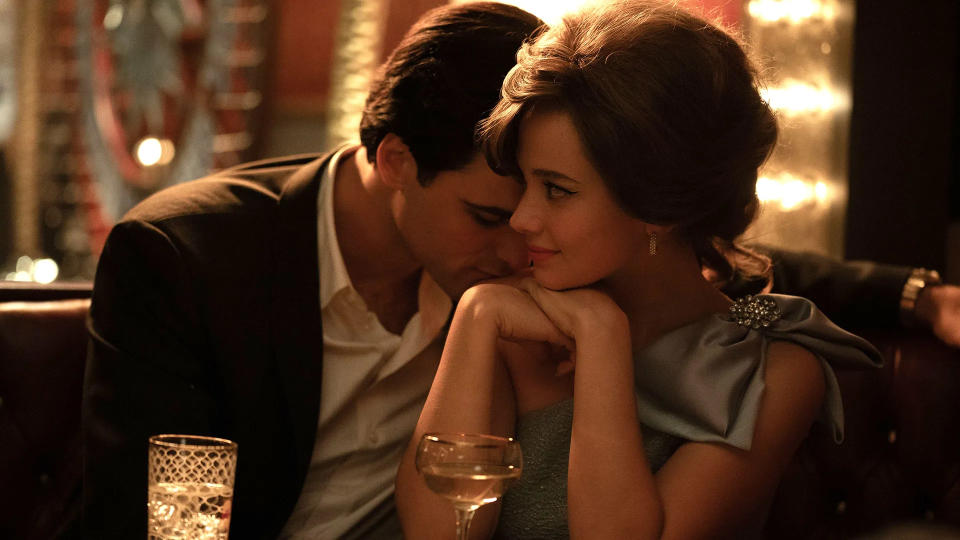Priscilla review: "An intriguing tale of burning love and toxic fame"

Hot on the Cuban heels of Baz Luhrmann’s razzle-dazzle Elvis comes Sofia Coppola’s adaptation of Priscilla Presley’s book Elvis and Me. That 1985 tell-all recounted the infatuation, romance, and disillusion of her formative years, and how they were moulded by a complicated, damaged man. With Presley herself on-board as executive producer, Priscilla isn’t a hagiography of the King. Instead, it offers an opportunity to explore not only the seduction and charm of that relationship, but the coercion, isolation, and eventual journey to emancipation experienced by a teenager trapped behind the gates of Graceland.
It kicks off with ninth-grade Priscilla (Cailee Spaeny, lovely) stationed unhappily in 1959 Germany with her family. But Presley soon enters the picture when the teen is invited to attend a party at the drafted star’s nearby home. The sparks fly immediately as Elvis (Jacob Elordi, vulnerable and tempering a full hound-dog drawl until Presley returns to his stomping ground in Memphis) chastely courts Priscilla, controlling their passion because of her tender age. Once he’s shipped back to the States, the girl he left behind begins a routine she’ll endure through her relationship and marriage: Presley calling the shots, expecting everything, and promising nothing.
Moving to Graceland to play house, Priscilla learns that she will always have to share her star lover/playmate/teacher/stylist - with his omnipotent so-called Memphis Mafia, his drugs, and his other women. She also discovers that EP’s girl needs to dress, look, weigh, behave, and think a certain way to remain his baby. “You have everything a woman could want,” he tells her. But with a life defined by someone else, does she know what she wants?
Stepping as carefully as her lead does through a sugar-pink shag-pile carpet, Coppola is so respectful of the source material and Priscilla’s standing as guardian of Elvis’ legacy that there’s a certain sense of coyness here that isn’t present in the book. Elvis’ white-hot anger, his cruel streak, adultery, and sexual rationing is addressed, but gently. And the faithful retelling makes it feel episodic when compared – impossible not to – with the flashiness of Lurhmann’s fairground ride.
But Coppola excels in creating the atmosphere and emotion swirling around Priscilla as she gets her prince but is locked in his tower. The director deftly employs gorgeous production design, a recurring baby-pink motif (carpets, Cadillacs, hair dryers, mohair sweaters, flowers), and Spaeny’s expressive Bambi eyes, focusing on them as they widen in wonderment and lower in hurt dejection.
The iconography of mid-century teendom is worshipped: hairspray, lashes, nails, and a cute gun for every outfit. Presley’s music and movies are kept at arm’s length (only a moment of the ‘68 special and the Vegas shows are enacted) and none of the other key figures in his life (the Colonel, Ann-Margret) make an appearance, heightening the disconnect of living in his world but being compartmentalised. Priscilla is often framed in empty windows and empty rooms, growing up alone and waiting, her yearning palpable.

The subject of that longing needs to be charismatic with caveats. Elordi, with his towering height and spot-on Presley laugh, manages mercurial swings from hesitant confessor to chair-chucking sulker, from religious book nerd to swaggering hot rod. He looms over Spaeny like a vampire in some moments (particularly in his mausoleum bedroom), his physical presence as overpowering as his words. He doesn’t particularly look like Elvis, but convinces nonetheless. A difficult trick to pull off when following Austin Butler’s recent, fêted performance. But where Butler aced the embodiment of performer and Momma’s boy, Elordi mines the manipulator and ringleader.
Nerdily detailed – a Dolly Parton needle-drop packs an emotional punch for its lyrics and real-life resonance in the Presleys’ marriage – and evocative, Priscilla is a beguiling, quieter companion piece to Luhrmann’s awards-winner. But it suffers an abrupt ending and, compared to the creativity displayed in Coppola’s other biopic, Marie Antoinette, is a more muted affair.
Priscilla opens in US cinemas on October 27 and in UK cinemas on December 26 (previews) and January 1, 2024 (wide).
